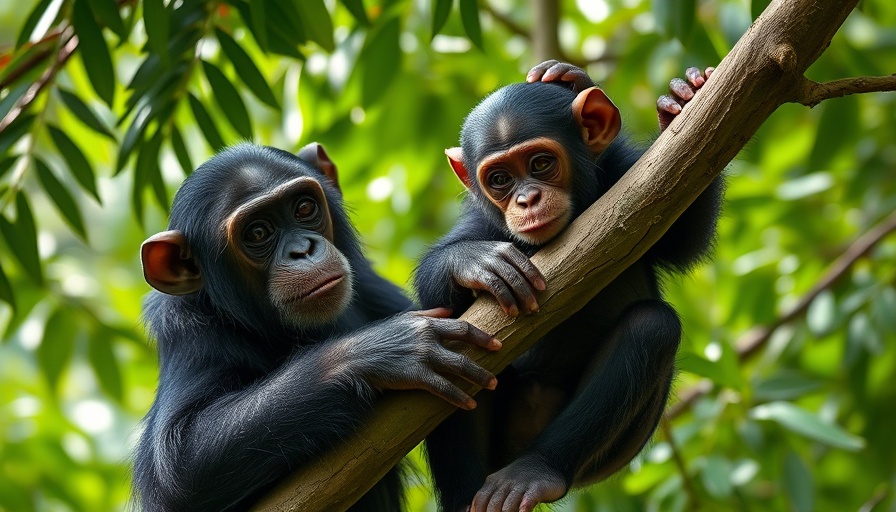
Chimpanzees Eating Bat Guano: An Unexpected Twist in Wildlife Behavior
A surprising behavior has emerged among the chimpanzees of Uganda's Budongo Forest—these remarkable primates are now consuming bat feces, or guano, in a desperate search for essential minerals. This adaptation stems from the deforestation linked to increased tobacco farming in the region, which has stripped the forest of crucial nutrient sources such as the Raphia palm trees that chimps heavily relied upon.
Understanding the Health Risks for Humans
While the chimps have changed their diet out of necessity, this behavior raises significant concerns regarding potential zoonotic diseases. Scientists have discovered that the guano contains genetic material from at least 27 different viruses, including a betacoronavirus related to strains like those responsible for SARS-CoV-2. This alarming finding illustrates how closely interconnected wildlife and human health are, highlighting a pressing need for sustainable land use practices.
The Ripple Effect of Deforestation
The situation in Budongo serves as a cautionary tale about how human interventions, like tree cutting for agricultural purposes, can inadvertently create new pathways for diseases to transfer between species. The loss of habitat not only destabilizes the local ecosystem but also forces animals into closer contact with potential viral reservoirs like bats. As chimps seek out guano for its nutritional value, they may inadvertently increase their risk of infection.
One Health: A Unified Approach to Conservation
The link between environmental health and human health has never been more evident. Experts advocate for a One Health approach that treats the wellbeing of humans, animals, and ecosystems as interconnected. Protecting habitats, like the Raphia palms, could provide safer food sources for wildlife and mitigate the risks of future pandemics.
Steps Toward Sustainable Practices
Maintaining healthy ecosystems can help avert the next potential outbreak. Innovative solutions must be employed to provide local communities with sustainable alternatives that do not rely on the destruction of critical habitats. Educating local farmers about the implications of their practices and providing livelihood support can foster a more balanced coexistence between humans and wildlife.
Call to Action—Protect Our Planet
As the intricate balance of ecosystems hangs in the balance, becoming involved in conservation efforts is crucial. By donating to wildlife protection initiatives or raising awareness about sustainable practices, individuals can play a part in ensuring the wellbeing of both wildlife and humans. Every action counts in protecting our planet from future outbreaks like those hinted at by the chimps' peculiar dietary switch.
 Add Row
Add Row  Add
Add 




Write A Comment